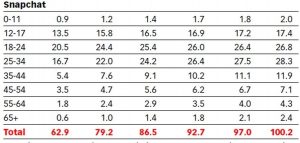
A focus on personal time considerations is normal
When selling a business, most owners will clearly be focused on their own internal timing issues. These will likely include personal factors such as planning to retire at a certain age, in addition to business factors such as selling the business whilst it is generating the maximum profit. The most common scenario is the “I want to sell my business by the time I’m 60” approach, which leads to business owners taking a blinkered approach to the sale and only focusing on their own objectives.
Consideration of external stakeholder timing
Clearly internal timings are hugely important when considering a sale, but most people forget to consider the external environment when exit planning. External timing considerations will consist of macro economic factors and how these will impact the market in which they operate, but also the timing considerations of the most likely buyers of the business.
For example, if the A* buyer of your business has recently made a transformational acquisition and will therefore be solely focused on integration for the next six months, taking your business to market and approaching this buyer at the current time is unlikely to achieve the best result.
Planning ahead will help to optimise timing
Whilst it may seem impossible to understand the intentions of all key buyers for your business, this is where an advisor can really add value. By using an M&A advisor, they will be able to approach the most likely buyers for your business to understand their general acquisition appetite at the current time. This provides an important barrier between you, as the business owner, and the prospective buyers, allowing you to understand their intentions without having to hold a direct conversation and open up about your potential sale.
When preparing a business for sale, it’s therefore essential to undertake a detailed exercise which maps out the timing considerations for all key stakeholders in a transaction. This will include not only the owner and their business, but also the prospective buyers of the business. This will allow the owner to make an informed decision around the best time to market their business in order to maximise value and achieve the optimum outcome.
Business & Finance Articles on Business 2 Community
(27)









